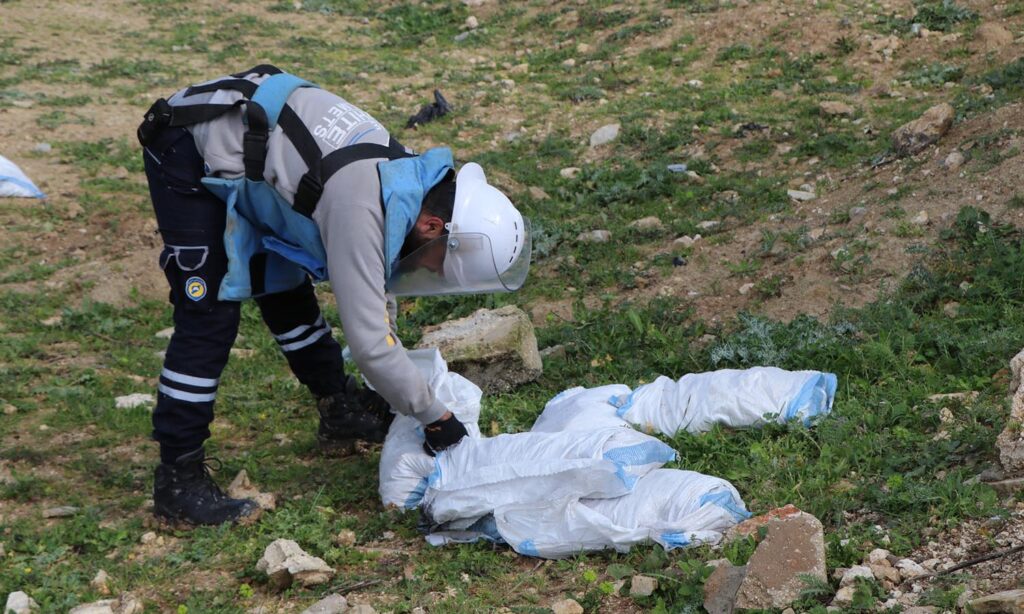A civilian was killed by a war remnants explosion in an agricultural field on the outskirts of Bdama town in western rural Idlib.
The Syria Civil Defence (The White Helmets) rescue agency said in a statement today, Saturday, July 27, that the last four days witnessed four explosions of remnants from shelling by regime and Russian forces, the most recent occurring today, Saturday, which resulted in the death of a civilian and injured nine others, including seven children and a woman in northwestern Syria.
On July 24, three explosions of war remnants occurred in northwestern Syria. An explosive projectile detonated in a tent in the Ataa camp in the Sheikh Bahr area west of Idlib, causing severe injuries to four civilians from one family (father, mother, and two children, one of them an infant).
Another explosion occurred in Qaramtli village in rural Afrin, northwestern Aleppo, injuring four children, and an explosion on the outskirts of Korin village south of Idlib injured a child severely.
During the first half of this year, the Civil Defence documented five war remnants explosion incidents in civilian environments, which resulted in the death of three civilians, including a child, and ten injuries, all of whom were children.
Widespread contamination
The coordinator of the War Remnants Removal Program in the Syria Civil Defence team, Mohammad Sami al-Mohammad, told Enab Baladi that war remnants are ticking time bombs that threaten the lives of residents, especially children. The continued shelling of civilian areas by the Assad regime and Russia increases the risks of these remnants spreading.
The range of war remnants contamination, especially cluster bombs, is widespread and not precisely known, particularly with the continued use of cluster bombs by the regime and Russia over the past 13 years.
Civil Defence teams are intensifying their efforts to protect civilians in northwest Syria from these remnants through activities including non-technical survey, removal, and awareness, according to al-Mohammad.
During the first half of this year, Civil Defence teams disposed of 459 unexploded ordnances from war remnants, identified 188 contaminated areas, and conducted 610 non-technical survey operations.
In 2023, the teams disposed of 1,054 ordinances, conducted 1,450 non-technical survey operations, and identified 531 areas contaminated with ordinances.
From July 2012 to September 2023, the Cluster Munition Monitor, part of the International Campaign to Ban Landmines, documented at least 4,408 cluster munitions casualties in Syria, making it the second-highest country in terms of recorded casualties after Laos. In 2022, the number of cluster munitions casualties in Syria reached 90.

